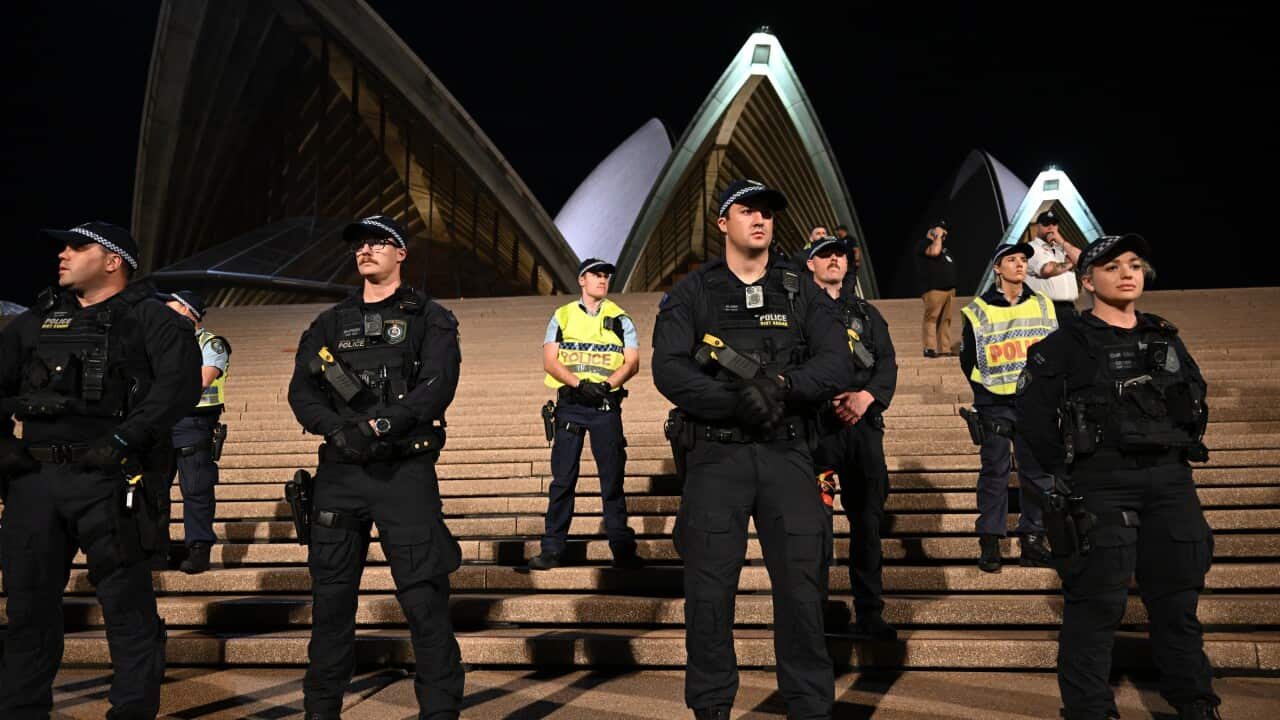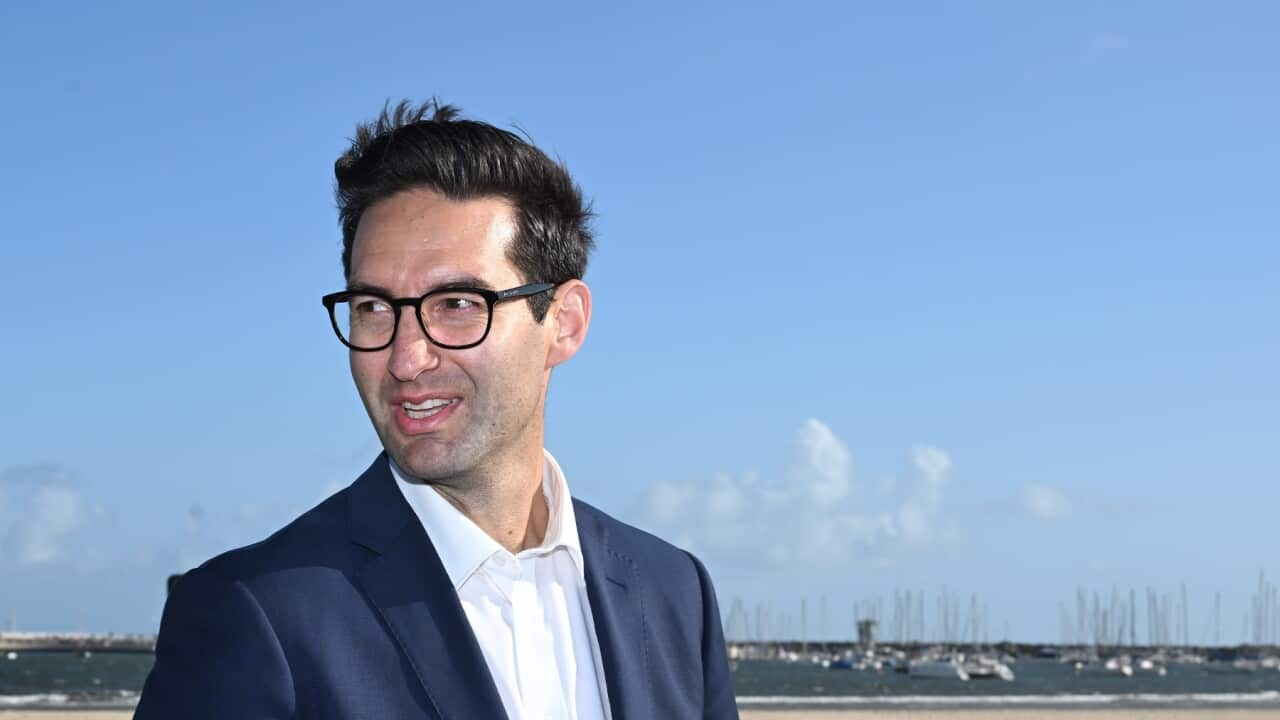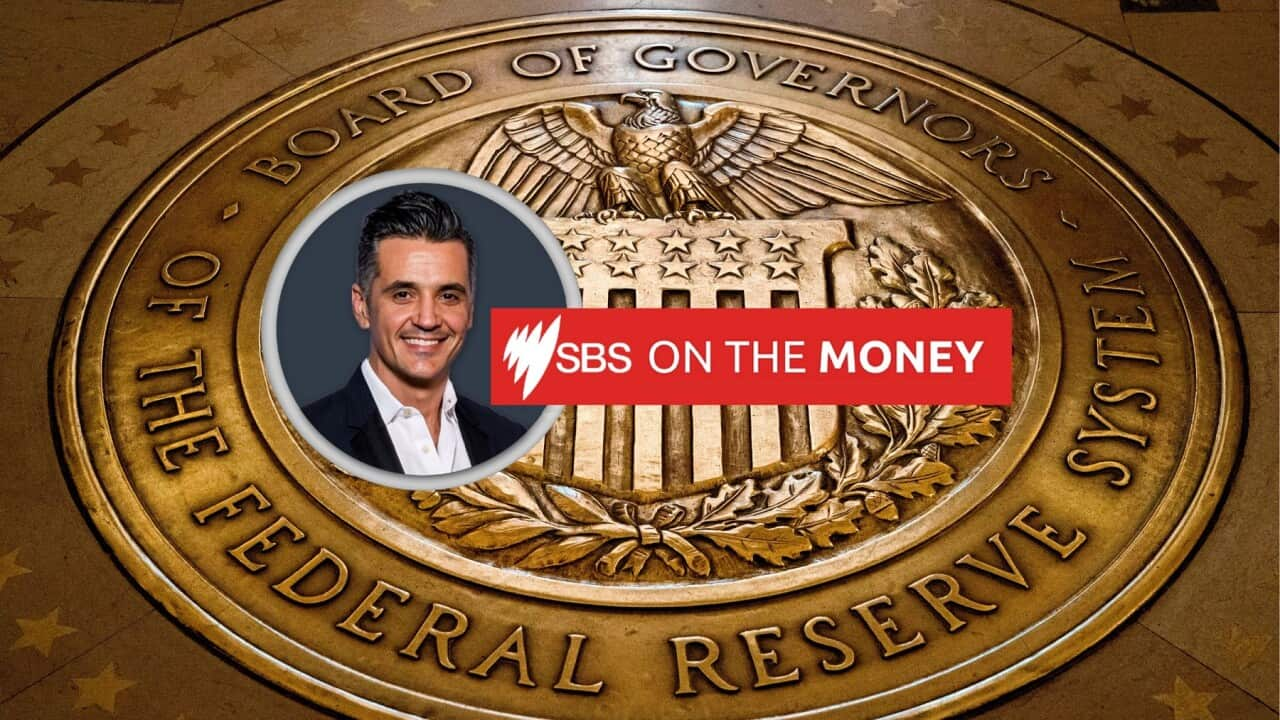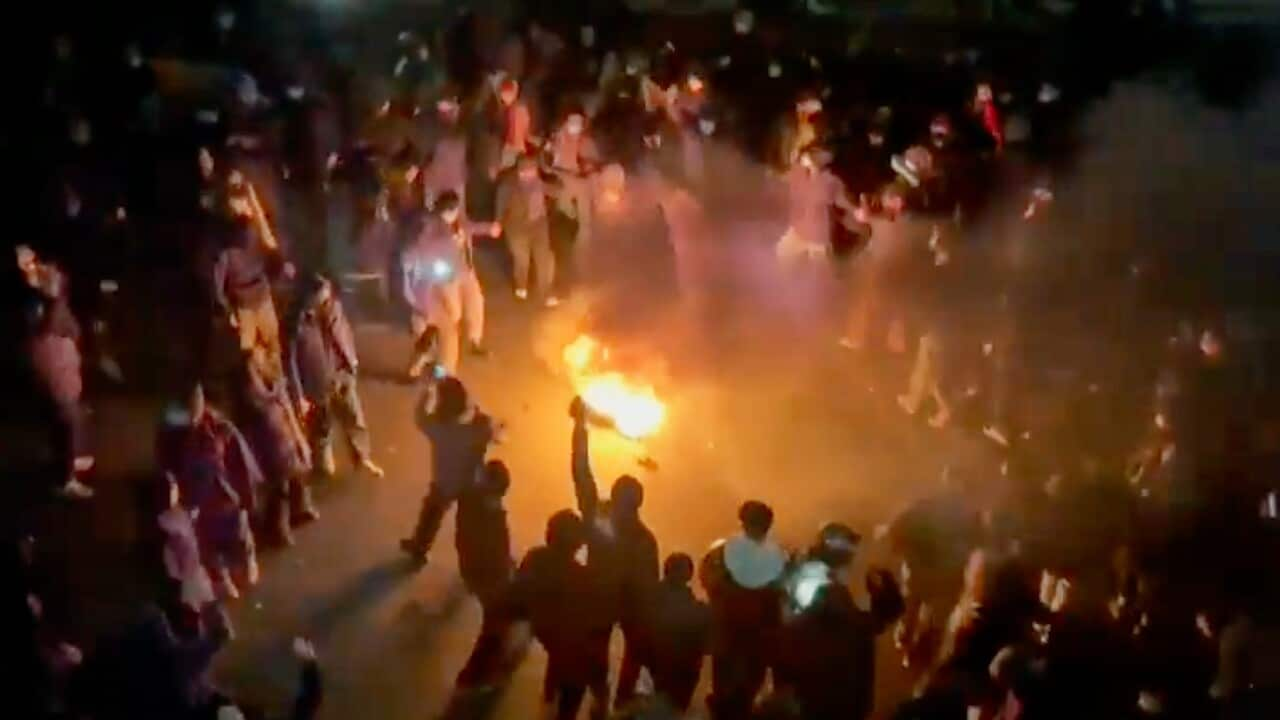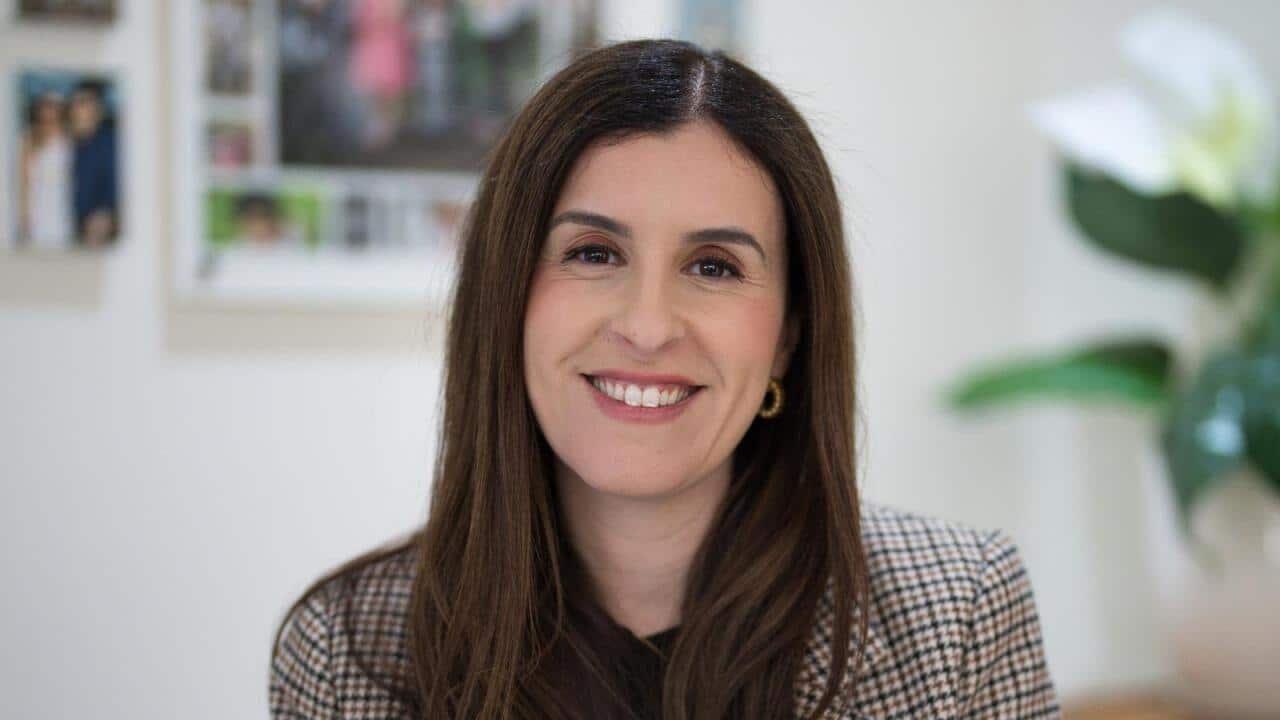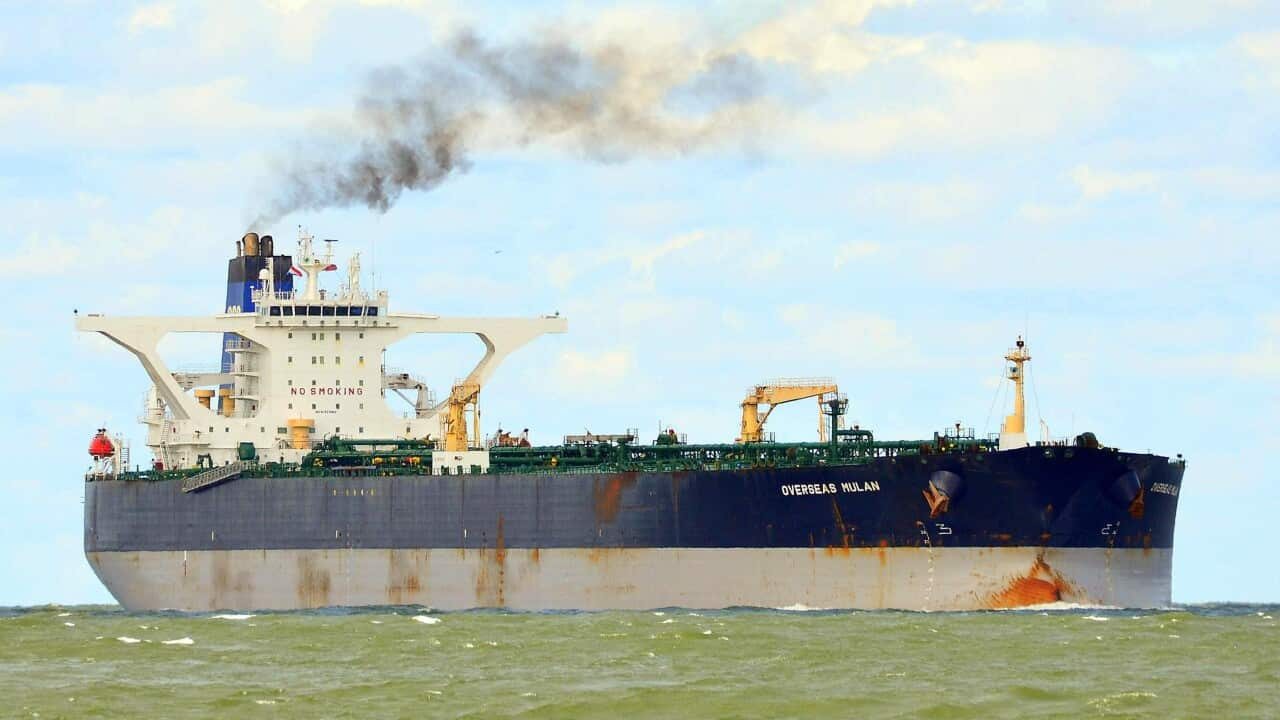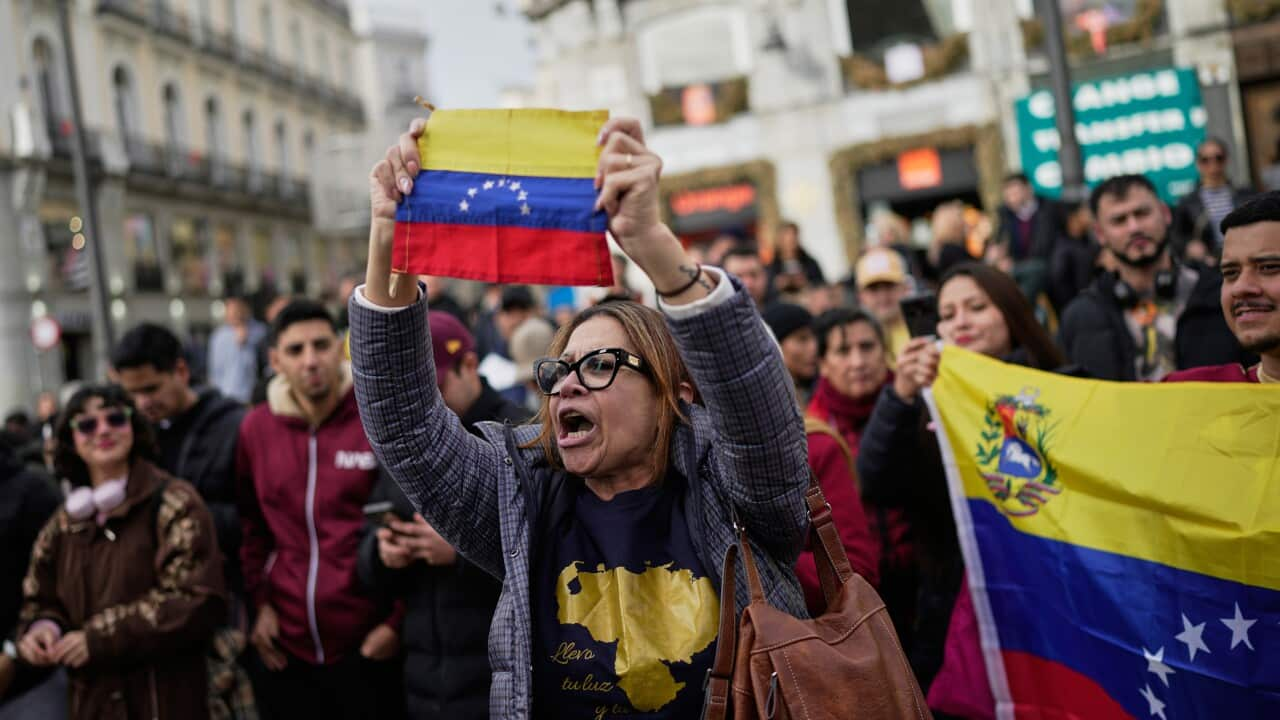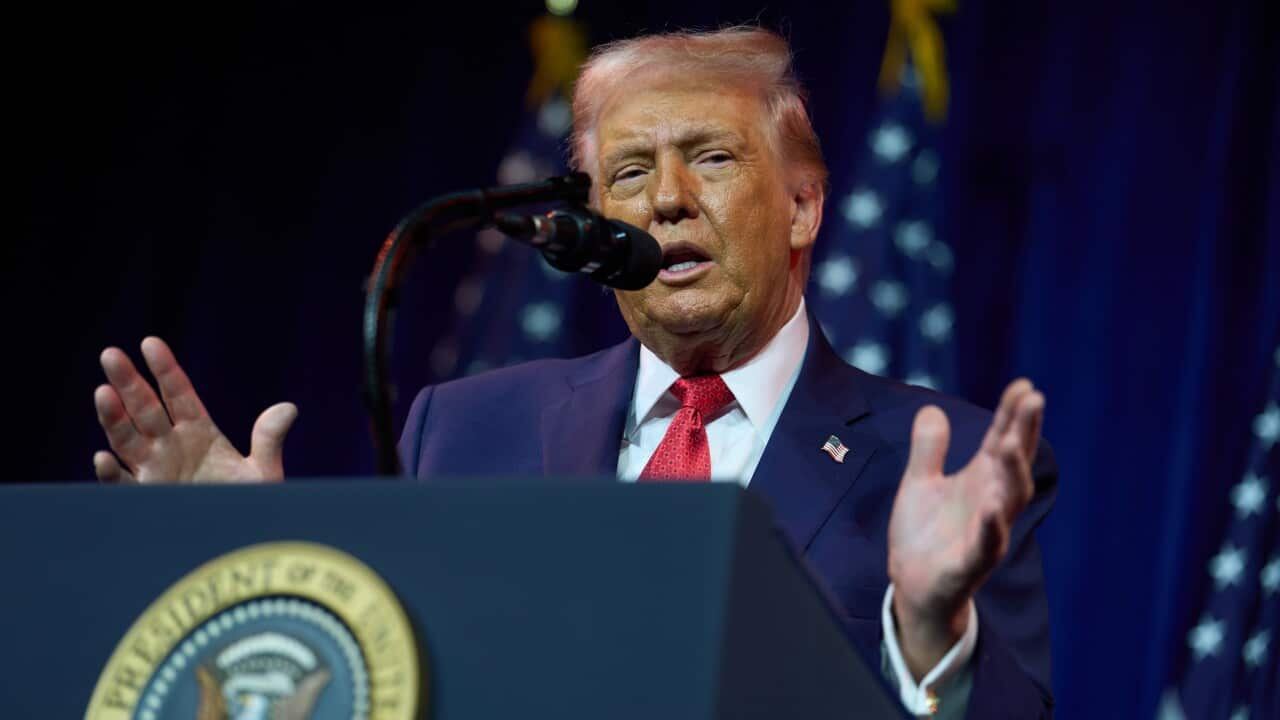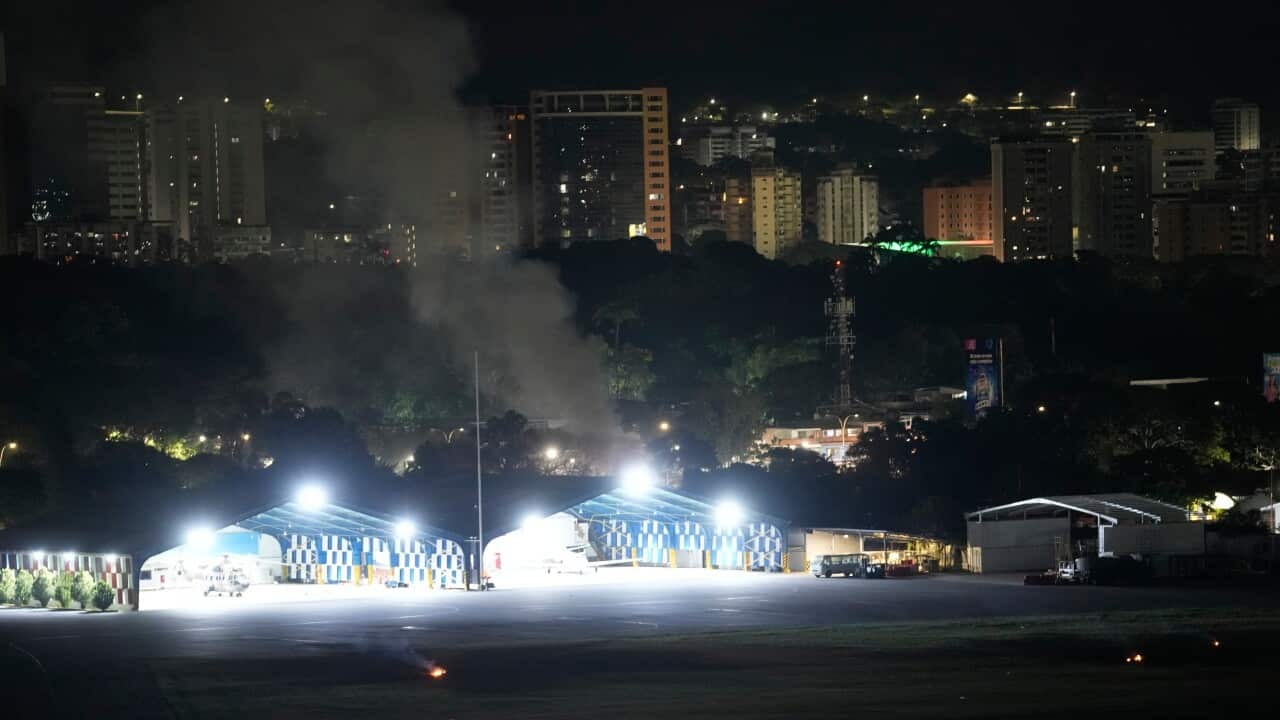TRANSCRIPT
On the 9th of October - two days after Hamas's attacks on southern Israel that reignited the long-running conflict between Israel and Hamas - the Palestine Action Group in Sydney called a rally in solidarity with Gaza.
Allegations of what was said there would ripple around the globe.
Videos showing protesters gathered outside the Sydney Opera House, onto which the Israeli flag was being projected, were circulated by the Australian Jewish Association.
Captions on that footage claimed the phrase "gas the Jews" was repeatedly used.
Now, New South Wales Police have released the findings of their investigation into the incident.
Deputy Commissioner Mal Lanyon says the taskforce enlisted an eminent biometric expert.
"That expert has conducted an audio, visual, and acoustic-phonetic analysis of the audiovisual files. As a result of that examination, the expert has concluded with overwhelming certainty that the phrase chanted during that protest, as recorded on the audio and visual files, was 'Where's the Jews?', not another phrase as otherwise widely reported."
He explains the video itself was not found to be doctored, but the subtitles that were added were a subjective opinion.
Deputy Commissioner Lanyon also explained that, for criminal charges to be laid, words would have to be ascribed to an individual as inciting hatred or violence.
Alex Ryvchin is co-CEO of the Executive Council of Australian Jewry.
He says the protest was a national shame and the police announcement changes little, arguing the terminology is not the issue.
"We've all seen the video footage, we've heard the audio, and in addition to it there are multiple statements, sworn statements given by eyewitnesses attesting to what was said on that day. But ultimately the greater issue isn't whether it was 'gas the Jews' or 'where's the Jews?', 'eff the Jews', each phrase is as menacing and abhorrent as the next. The real issue here is that two days after the greatest atrocity inflicted on the Jewish people since the Holocaust, a group of Australians - a mob of thugs - gathered to burn flags, release flares and to menace and threaten their fellow Australians, that is the issue here."
Mr Ryvchin says the crowd was there to celebrate the mass slaughter, abduction and rape of Jewish people.
But Amal Nasser, an organiser at the Palestine Action Group, says that characterisation is defamatory and inaccurate.
She says thousands of people had protested peacefully for about four hours, before organisers alerted police about a group of teenagers using antisemitic chants.
According to Ms Nasser, police ignored requests to remove them from the rally.
"To frame all protesters and group them with 20 or so young teenage boys who had come to the Opera House unrelated to our rally and unassociated to our rally is just this continuation of this attempt to frame Palestinians - Palestinians and their supporters - as vile antisemites, which is outrageous."
Ms Nasser says she and others at the Palestine Action Group called the protest in anticipation of what they describe as a "violent genocide" by Israel in Gaza.
"By October 9, genocidal remarks were being put in place by heads of the Israeli government, and the bombing of Gaza had started to take place. We had anticipated that there was going to be a deadly war in Gaza, an anticipation that has proven correct, as we can see now, 15 weeks on. Over 26,000 Palestinians have been murdered by the Israeli government, and we were calling on that day for our government not to support to the Israeli government and to ensure no war on Gaza would have taken place. But instead our government wanted to display support for an apartheid regime, by displaying their flag on the Opera House."
Although Israel's ground invasion of Gaza had not yet begun, the United Nations reports that by the 9th of October almost 500 Palestinians [[493]] had been killed by Israeli airstrikes.
According to the U-N's Office for the Coordination of Humanitarian Affairs, that figure included more than 50 people killed that day at a market in the Jabalia refugee camp.
Ms Nasser says after the October 9 rally, there have been serious consequences for civil liberties and the portrayal of Arabs, Palestinians, and their supporters.
After that night, police considered evoking rarely used powers to curb future rallies, and the state government passed laws making it easier to prosecute hate speech.
At the time, New South Wales premier Chris Minns condemned the scenes that played out.
It's a position he has stood by after the police announcement, saying his views have not changed and calling the protest violent and racist.
But Jillian Segal, the co-CEO of the Executive Council of Australian Jewry, wants the premier to go further.
"It's really up to the government as to what their advice is that... why they cannot take action, why they think there is inadequate evidence, that you have to actually identify individuals, as opposed to what was happening and prosecute a group. If the legislation has to be changed then that's what has to be changed, and if the burden of proof is too difficult for the police, then it also has to be amended."
The New South Wales government is now conducting another review into its hate speech laws.
